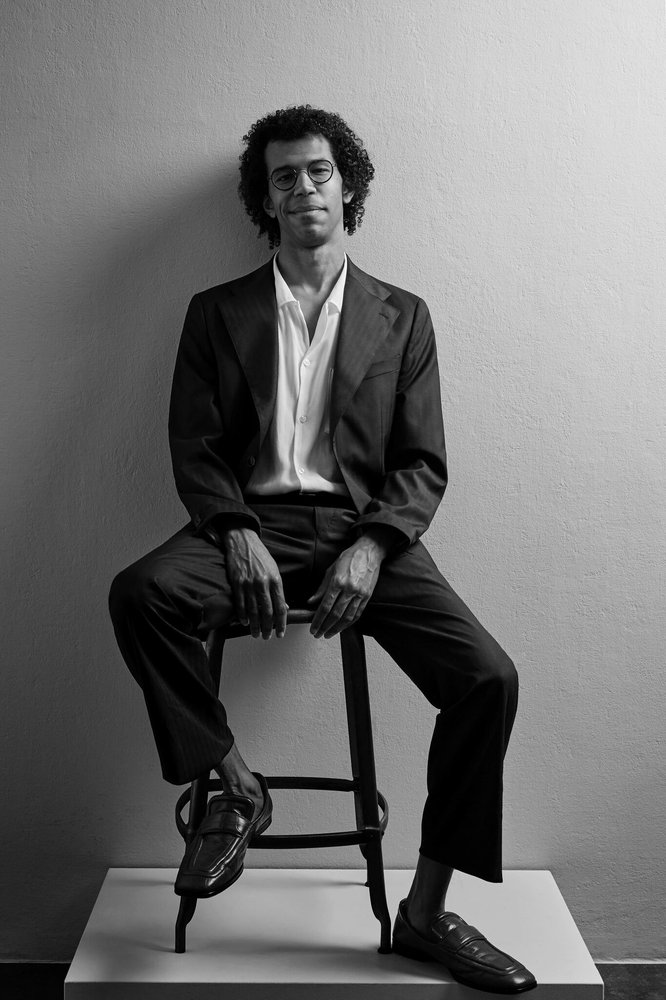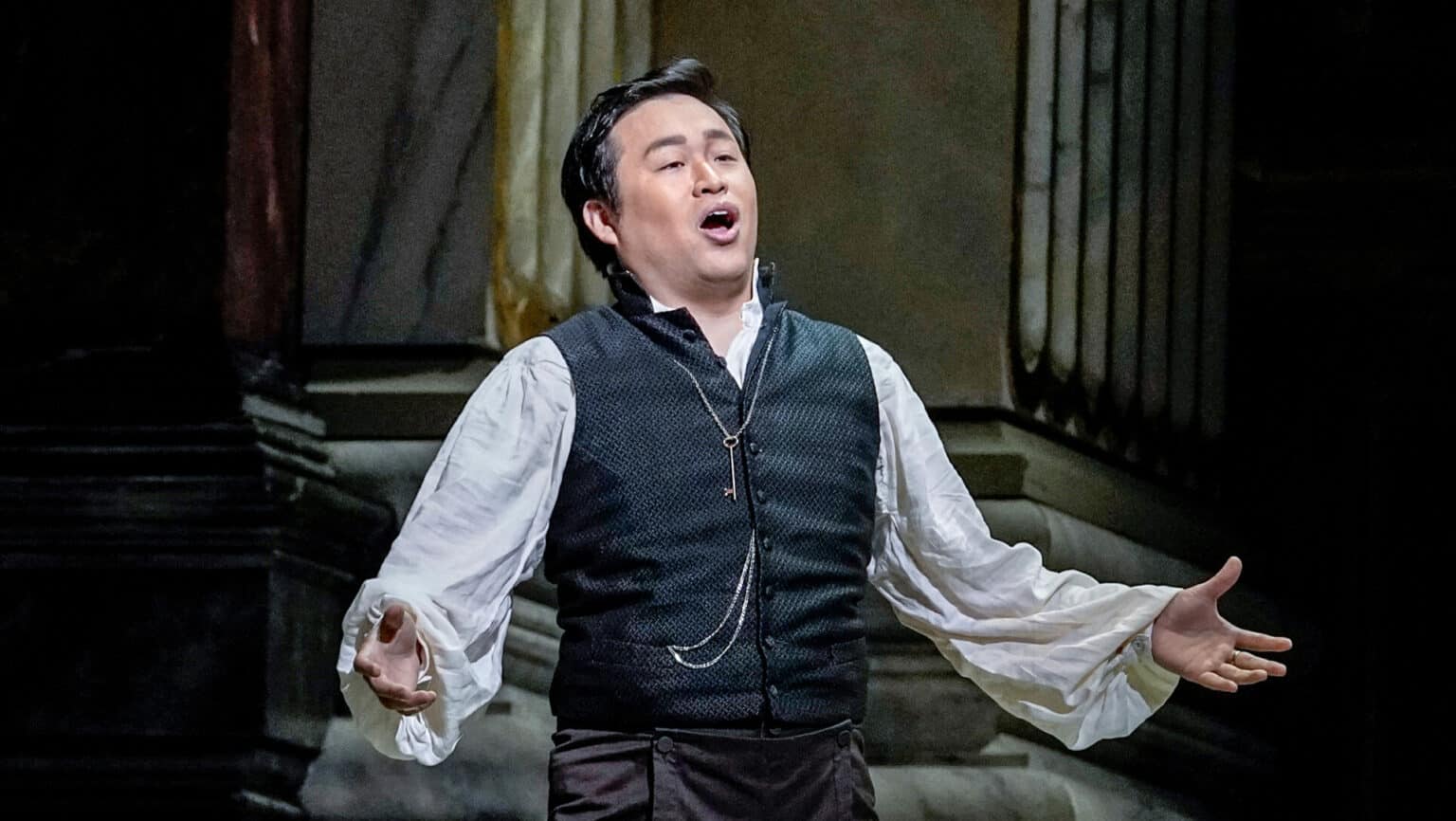Breaking: Baltimore names black music director
NewsThe Baltimore Symphony has just become the first top-10 American orchestra to appoint an African-American as its music director.
Jonathon Heyward, 29, won his first job as chief conductor of the Nordwestdeutsche Philharmonie last year. Before that, he was assistant conductor at the Halle in Manchester, after studying with Sian Edwards in London.
In Baltimore he succeeds the long-serving Marin Alsop. He inherits an orchestra that is cancelling concerts for want of a loyal audience. Its president Mark Hanson said: ‘We are inspired by (Jonathon’s) artistry, passion and vision for the B.S.O., as well as for what his appointment means for budding musicians who will see themselves better reflected in such a position of artistic prominence.’
Aside from conducting, he does modelling for a German fashion label.
Heyward grew up in Charleston, South Carolina. He is agented by IMG Artists.






Bravo!
Baltimore was *21st* by gross receipts in USA and Canada in FY 2017.
He and Mark Hanson could be a dynamic duo. But they need to get control of the Meyerhoff bureaucracy and Baltimore’s entitled class.
Amen to that. I wonder how Baltimore’s support from the ‘great and the good’ compares with other US orchestras. In any event, good luck to him, Mr. Hanson and the orchestra.
Notable DEI move, but it remains to be seen if it will have an effect on the Baltimore Symphony’s audience demographics.
The New Jersey Symphony named Henry Lewis in the late sixties as their music director. He held that post for several years. While Baltimore has an excellent orchestra I don’t know if I would say it is in the top ten. I recognize the NJSO is a much smaller organization in the orchestra sphere it is still a significant and well known symphony nonetheless.
while living in NJ I was a subscriber to the NJSO (under Wolff and Macal). It was an excellent orchestra.
Baltimore, top 10 US orchestra? That’s a huge reach. Not even sure they would make top 20.
what is your top 10 list?
Quality-wise, whatever that means these days, I’d say in the top 15. But today every orchestra is good. The difference is the leadership.
I don’t care what color or gender he is. The question is: does the talent, ability and experience match the role? Would love to hear those that know his work weigh in.
Bravo Maestro Heyward!
Like Obama, he is half White.
Like America, Baltimore has only taken a half step towards having a Black leader.
Look, self-identification is great and all that, blah blah blah, but both are as Black as they are White, and culturally speaking, obviously they are both more White than Black, so to call them Black would be as valid as to call them White, except calling them Black goes way father towards virtue signalling and expiation of self-guilt while still hiring a (half) White man.
It’s call having your cake and eating it too.
One day, there will be a Music Director who is Black, as one day, there will be a President who is Black; history will then have to put these men in proper perspective as to who was the first Black.
Congratulations to Mr. Heyward, whatever his color is. He is obviously a very talented conductor.
Like Obama, he’s Black enough for cab drivers and cops.
Practically all Afro Americans are of mixed race. This is a quote from a geneticist that works for 23 and me. “”You see all of those different ancestries in each of these groups,” Bryc explains. The average African-American genome, for example, is 73.2% African, 24% European, and 0.8% Native American, the team reports online today in The American Journal of Human Genetics. ” In the USA, Afro Americans are not considered to be mixed race, but they are. So in effect being Afro American means being mixed race. In the case of this conductor, if one parent is white and the other Afro American, then he might be more European than African, but he is still considered Black, in the USA, by Afro Americans and European Americans. This goes back to the days of slavery where any perceived amount of African blood qualified one to be considered Black and therefore slave material.
Baltimorean here. The BSO is one of America’s best, certainly better than the NSO which makes twice the money and arguably New York. It deserves so much better than it’s gotten. It’s resilience through dark days is truly astonishing and it still gives first-class performances. What matters here is that whomever is next gets them what they deserve before it’s too late and it fades away before anybody can recognize what they do.
Agree. The NSO has been sounding terrific of late, especially when Noseda is on the podium, but Baltimore to me is the better orchestra. I haven’t seen Jonathan Heyward conduct them, but saw him in Prague about six years ago (could he really have been only 23 at the time?).
And despite the complaints of “woke” programming, they are doing a lot of very interesting programs. I was kind of hoping they’d hire Hannu Lintu or Kevin John Edusei (who did a wonderful program with them a couple months ago), but a talented young American conductor? Sure.
When was the last time you attended a live NSO concert? You need to come here them under Noseda.
I saw them under MTT do Mahler 2. MTT was plainly furious with them for not watching. Even while sick he gave a beat clear enough to see from space and they still didn’t coordinate with him or listen to one another.
Isn’t it racist already to say he is black in the headline?
The title is an accurate introduction to the reporting that follows. If you agree with that, it follows you should ask yourself if you believe the reporting is racist. So, do you believe this sentence is racist?: “The Baltimore Symphony has just become the first top-10 American orchestra to appoint an African-American as its music director.”
If you think the sentence is racist, you’ll definitely think the title is as well. If you don’t, the title probably shouldn’t be considered racist either.
Another possibility based on what you wrote is that you’re an American who is conditioned to think that all black people the world over should be referred to as African-Americans regardless of their nationalities, and you’re objecting to the use of the word “black.”
Baltimore is a very fine orchestra but not even close to a top ten America Orchestra. The orchestra has struggled financially for many years and while this hire feels a bit like a “Hail Mary” I wish them luck and good fortune.
I suspect every time a conductor is hired and his non-musical attributes (race, sex, age…) are highlighted. If a conductor was hired for his music capabilities, nobody would be telling us (media, orchestra, blogs etc.) that he is black (which incidentally is obvious, though not important for what is important: music) or female or young, he (or she) would just be a terrific conductor who was hired because of his extremely high level of musicianship, his music experience, his terrific conducting technique, and conducting experience.
I believe Heywood was also being looked at in Milwaukee, where he is set to soon conduct a concert.
Good for him. He likely will become a hot commodity.
I think this post is the only news story in which the Baltimore Symphony has been described as a “top-ten” orchestra.
The term generally used in news stories, as was the case when Marin Alsop was appointed, is “major American (or US) orchestra.”
When Alsop became “the first female music director of a major American orchestra”, the question was raised as to what made the Baltimore Symphony a “major” orchestra and the Buffalo Philharmonic (JoAnn Falletta, music director) not one. The answer to that question, at least at the time, was that the dividing line was a having the musicians on a 52-weeks-a-year contract.
The thing now is that Jonathon Heyward is being described as the second-ever African-American music director of a major American orchestra. That’s presumably in deference to the late (and much-loved) James DePreist of the Oregon Symphony, although I don’t believe the Oregon Symphony has ever had its players on a 52-week contract.
Go figure …
There is nothing wrong about being black (and nothing right about Marin Alsop, but that’s another story).
Good luck to him. Good luck to them. His Prom Beethoven 5 with the over-lauded Chineke! was bland, boring and totally uninspired.
You have confused Jonathon Heyward with another Black conductor. Please do your homework before spouting ignorance.
It was Edusei who conducted this performance….can you even read names?…..It´s always amusing to watch fools expose themselves. This goes also for the 6 buffoons who gave your comment a thumbs up,lol…..
Does it really matter if he’s African American or not- the implication being that its a token gesture by the Baltimore Symphony in a country obsessed with racism? More important- is he competent & worthy of holding an MD post with a major US orchestra. From the look of things in a couple of You Tube videos (one with the NYO of Great Britain) he appears to be a relatively good conductor- but no better than hundreds of others in his generation- surely capable of obtaining a similar post. Incidentally- the BS were pretty good under Zinman (several excellent recordings) & didn’t Termikanov do good work with for about a decade.
Why do we have to have a qualifier and labels on people. How about “Baltimore Symphony Names Jonathan Heyward as Conductor” period, end of sentence. Why do we need to know his race? As a society we will never get past race as long as we have to always have “the first black”, “the first asian”, the first whatever”. I’m pretty sure when people see him for the first time, his race will be evident. He is not an anomaly.
It’s very easy for white people to “get past race”. I think a young black kid would be thrilled to see a black conductor and think “hey, maybe I could do that someday.”
Have we forgotten Henry Lewis appointed in the ’70s to lead the New Jersey Symphony? He became the finest Rossini conductor in the biz and was dynamite with Verdi. In fact he was dynamite with any composer he chose to conduct. He left very big shoes to fill.
Depressingly shallow race hustle. Didn’t work when they hired what’s-her-name, who basically bankrupted them. Baltimore’s story will be cited often when historians write about how America’s orchestras gradually went out of business.